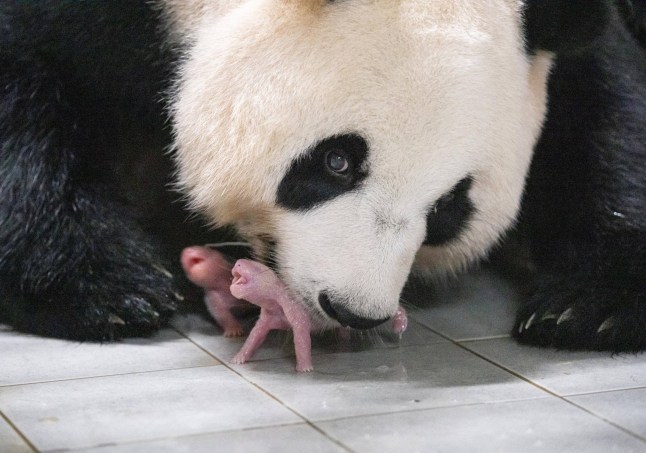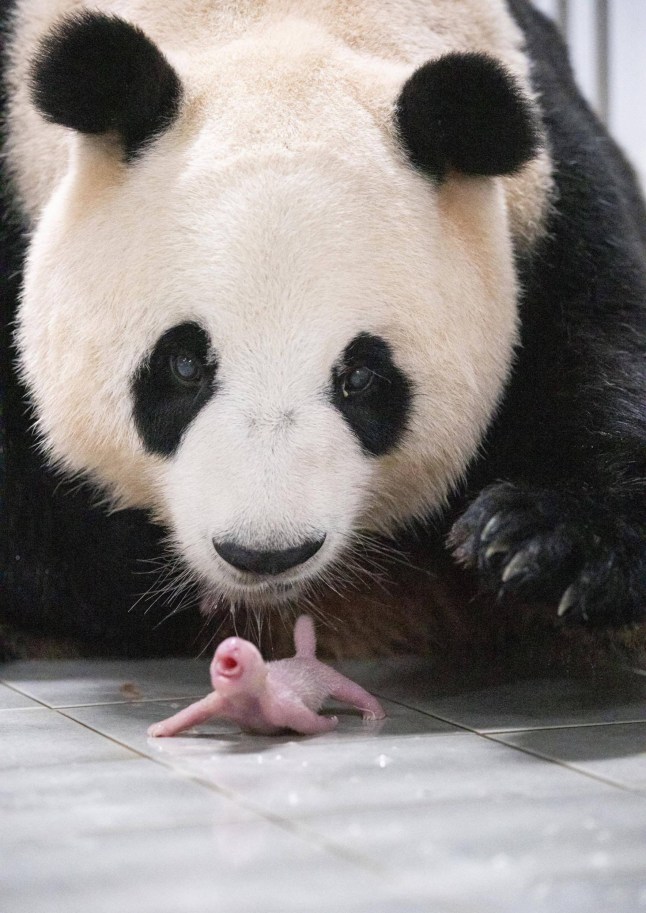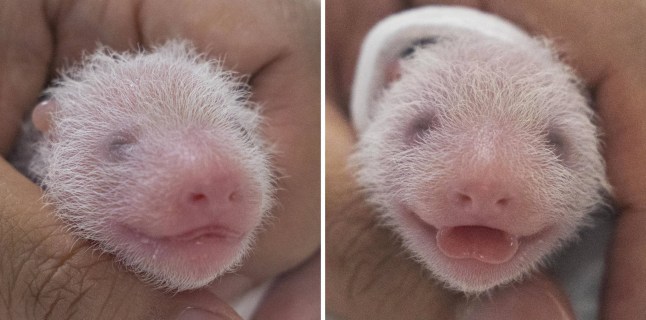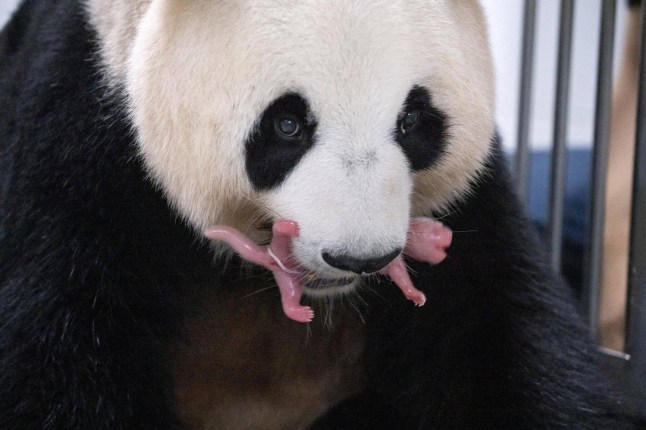A giant panda has given birth to twin cubs in South Korea for the first time in history.
Panda dad Le Bao and panda mum Ai Bao welcomed two girls on Friday night at Everland, Korea’s largest theme park in Yongin, Gyeonggi.
The 180g elder sister was born at 4:52am and the younger sibling was born at 6:39am, weighing 140g, about as heavy as a baseball and as large as a stick of butter.
Their birth was announced by the park in a YouTube video uploaded yesterday, showing the tiny cubs being held by Everland staffers as part of a health check.
A spokesperson for Samsung C&T’s resort group, the park’s operator, said it was the first time twin giant pandas have been born in the country.
‘The mother and the cubs are all in a healthy condition,’ an Everland spokesperson told the English-language daily Korea JoongAng Daily.

‘Ai Bao is giving good care to her cubs, putting her experience with Fu Bao to use.’
Ai Bao (which means ‘adorable treasure’) and Le Bao (‘a treasure that gives pleasure’) first came to the park in 2016 from China on a 15-year lease programme.
According to Samsung C&T, the pandas hail from the Sichuan Dujiangyan Panda Habitat, nearly 1,500 miles away from Everland, just outside Seoul.
Their daughter Fu Bao, born in July 2020, was the first giant panda convinced naturally in South Korea.
They have lived in Everland’s Panda World attraction since and have seen more than 14 million people flock to the park to see them.
Giant pandas are a national icon of China, the only place in the world where the animals live outside of captivity.
China has long loaned the black and white bears to overseas zoos as part of its so-called ‘panda diplomacy’, hoping to strengthen ties with other countries.


While Beijing originally gifted the bears to countries, it has since 1984 instead offered them over as part of a short-term loan.
Hosting zoos typically pay Beijing hundreds of thousands of dollars in annual fees to keep the pandas for research and exhibition purposes.
The pandas are eventually given back to China – Fu Bao is due to be returned by July next year at the latest, the zoo said – with cubs sent to China before they turn four.
Giant pandas, usually found chowing down on bamboo in southwest China, are considered ‘vulnerable’ to extinction by the WWF.
They had been considered endangered for nearly three decades, with there being fewer than 1,200 in the 1980s.
But amid the Chinese government’s efforts to restore bamboo forests and establish national habitat reserves, their population went up to more than 1,800 (excluding cubs) in September 2016.

Scientists warn, however, that giant pandas being saved from the brink of extinction might be short-lived.
More Trending
Their natural habitats have been gobbled up by decades of human meddling – and climate change risks what little pandas have left.
Logging, human encroachment, road construction and agriculture have left the animals with only six mountain ranges left to call home, a 2017 study published in Nature Ecology & Evolution found.
Across the ranges, about 30 isolated groups of pandas roam about. Of them, however, 18 contain no more than 10 pandas each.
Get in touch with our news team by emailing us at webnews@metro.co.uk.
For more stories like this, check our news page.













